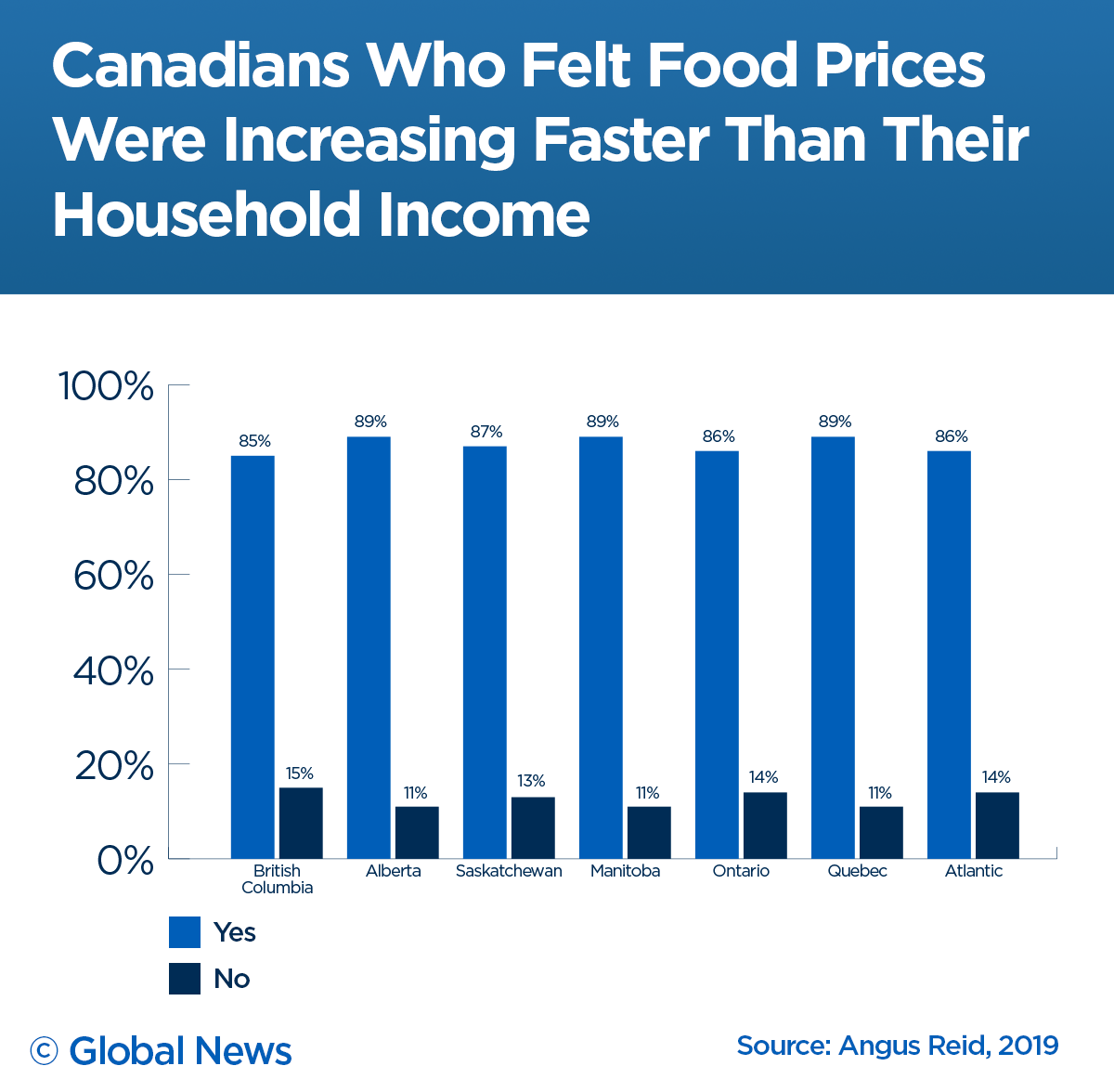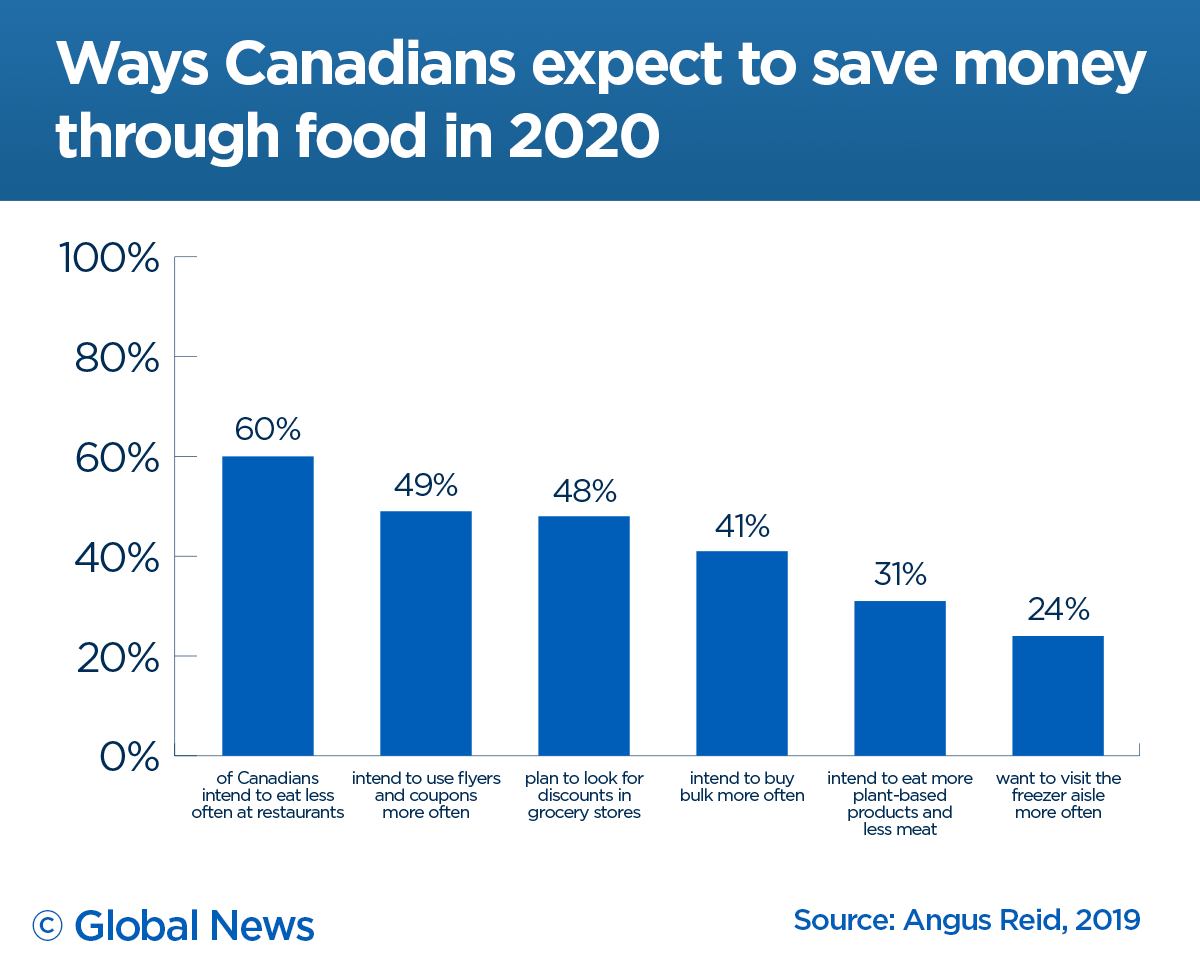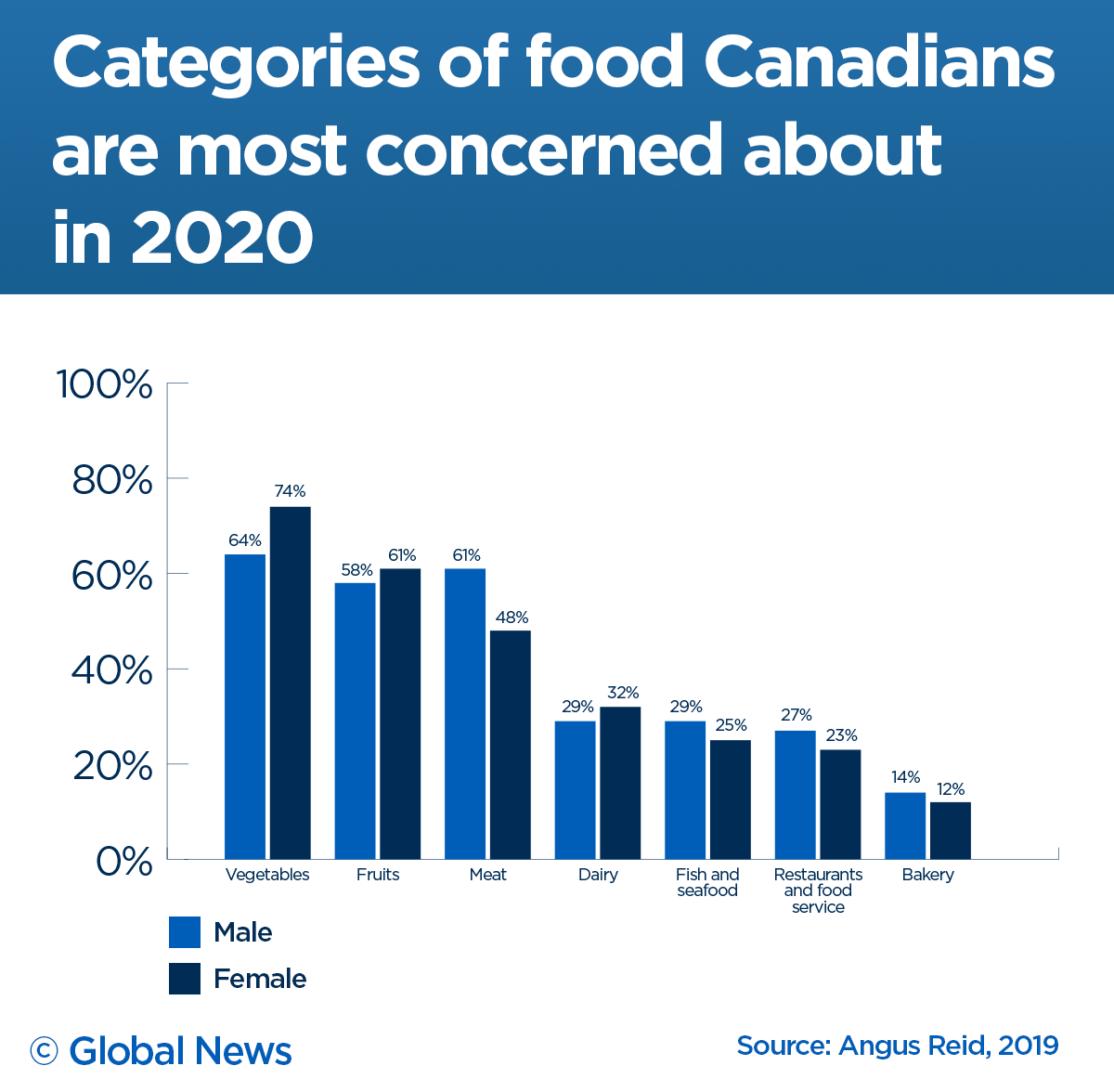A new survey suggests that 87 per cent of Canadians feel that food prices are rising at a faster rate than their household income.

The survey, released by Dalhousie University, did a nationwide scan for what Canadians’ perceptions were on food affordability, as well as on what they were willing to do to offset the costs of food inflation next year.
“We’ve done a survey on Canadians in terms of perceived food affordability because everyone enjoys complaining about food prices,” said Sylvain Charlebois, senior director of Dalhousie’s Agri-Food Analytics Lab. “But the real question is whether or not Canadians actually feel that they’re falling behind relative to their revenues.”
According to Charlebois, the number of Canadians feeling concerned about food prices relative to their income was way higher than expected.
“We were expecting perhaps to see the majority of Canadians being concerned about food affordability, but we weren’t expecting 87 per cent,” he said. “Maybe something a little south of 60.
- WestJet execs tried cramped seats on flight weeks before viral video sparked backlash
- Pizza wars? As U.S. chains fight for consumers, how things slice up here
- Flu numbers in Canada remain high but trending down after winter holidays
- Health Canada says fake Viagra, Cialis likely sold in multiple Ontario cities
“But 87 per cent is quite substantial — it means that the vast majority of Canadians actually do feel that food prices are moving much faster than their own income. And so food affordability is clearly an issue in the country.”
According to a previous report released by Dalhousie and the University of Guelph, food prices could increase as much $487 in 2020 for the average Canadian family. It’s an increase that could bring total household food expenditures to $12,667 for families following Canada’s food guide.

That report cited changes in consumer preferences, continuing trade wars, global growth deceleration and failure for wages to adjust for inflation as factors for the increase.
“I think everyone is realizing that they can afford less food for the same amount of price, for the same amount,” said Charlebois.

Get daily National news
Food Banks Canada CEO Chris Hatch said that Charlebois’ sentiment is a reality shared by many Canadians — as much as one in eight.
According to Food Banks Canada’s annual Hungercount report, food bank visits across the country reported a total of over one million visits in the month of March alone — a number that’s stayed relatively the same since 2010.
In the last year, about one in eight households across Canada experienced food insecurity, according to Hatch, who attributed the rate to stagnating wage growth, as well as the increase of housing, rent and food prices across the country.
“We’re just seeing every day, day in and day out, more and more people having to turn to food banks in some of the major cities because housing costs have gone up and up and up,” said Hatch.

“And they will pay their rent first, they will keep their shelter over their heads first, and then what gives are things they can flex, such as food, they start skipping meals, they become food insecure or severely food insecure and they eventually, unfortunately, turn to a food bank as a last resort.”
The survey also explored what Canadians were looking to do in order to offset food inflation in the new year, suggesting that 53 per cent of Canadians were looking to change their food shopping habits come 2020.
In order to save money, Canadians were planning to make several concessions to their shopping and eating habits — with more than half saying they would eat out less at restaurants and almost 50 per cent saying that they would use flyers and coupons more often.
Dalhousie’s survey also separated Canadians’ concerns geographically, with people in Alberta and Quebec feeling the most concerned about their ability to pay for food and British Columbians feeling the least concerned.
Dalhousie’s survey found that Canadians were most worried about rising vegetable prices, with close to 7 out of 10 expressing concern.
Charlebois said to not only expect vegetable prices to increase in 2020 — which rose more than 15 per cent this year, according to the survey — but also the price of meat.
Canadians can expect meat prices to increase between four to six per cent next year, while seafood and vegetables could jump as much as four per cent, according to the Canada Food Price Report 2020.
Hatch, who was also frontline food bank worker during the 2008 recession, said that Canadians need to prepare for what’s coming tomorrow.

“If we say we’re currently in ‘good economic times,’ which is what they’re saying, and we’ve got 1.1 million visits to the food bank in a month during ‘good economic times,’ my concern is when the economy turns south,” he said.
“So, you know, we’re like the canary in the coal mine … people ask me what keeps me awake at night as the CEO of Food Banks Canada, and I say that’s what keeps me awake at night.”
Dalhousie’s end-of-year survey was conducted in early December 2019 through Angus Reid. There were 1,507 Canadians surveyed. The margin of error for the survey is 2.9 per cent, 19 times out of 20.
Follow David on Twitter











Comments